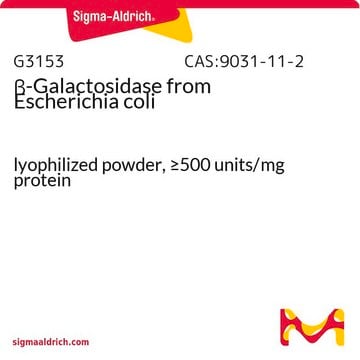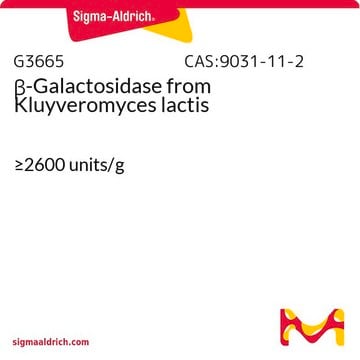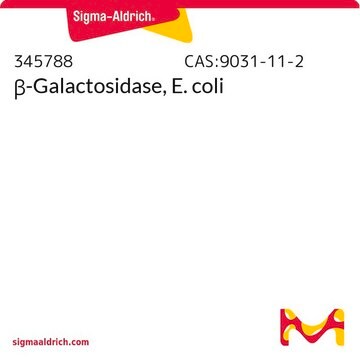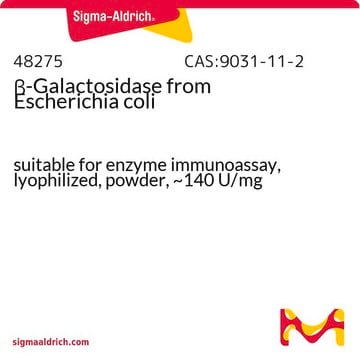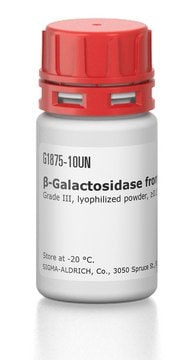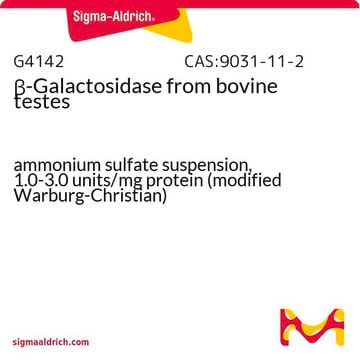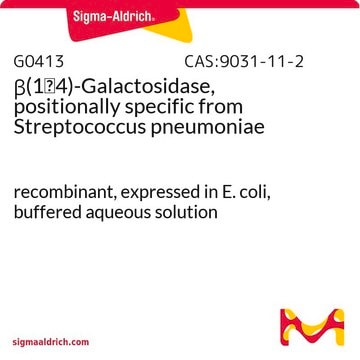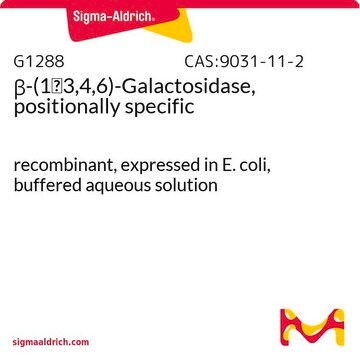G5635
β-Galactosidase from Escherichia coli
Grade VIII, lyophilized powder, ≥500 units/mg protein
Synonym(s):
β-D-Galactoside galactohydrolase, Lactase
About This Item
Recommended Products
type
Grade VIII
Quality Level
form
lyophilized powder
specific activity
≥500 units/mg protein
mol wt
465 kDa
does not contain
BSA as extender
composition
Protein, ≥60% biuret
storage temp.
−20°C
Looking for similar products? Visit Product Comparison Guide
General description
Application
Biochem/physiol Actions
Physical properties
Unit Definition
Physical form
inhibitor
substrate
Storage Class Code
11 - Combustible Solids
WGK
WGK 3
Flash Point(F)
Not applicable
Flash Point(C)
Not applicable
Personal Protective Equipment
Certificates of Analysis (COA)
Search for Certificates of Analysis (COA) by entering the products Lot/Batch Number. Lot and Batch Numbers can be found on a product’s label following the words ‘Lot’ or ‘Batch’.
Already Own This Product?
Find documentation for the products that you have recently purchased in the Document Library.
Customers Also Viewed
Articles
For use as a marker in SDS-PAGE; Albumin from chicken egg white, For use as a marker in SDS-PAGE; L-Lactic Dehydrogenase from rabbit muscle, Type XI, lyophilized powder, 600-1,200 units/mg protein
Our team of scientists has experience in all areas of research including Life Science, Material Science, Chemical Synthesis, Chromatography, Analytical and many others.
Contact Technical Service

